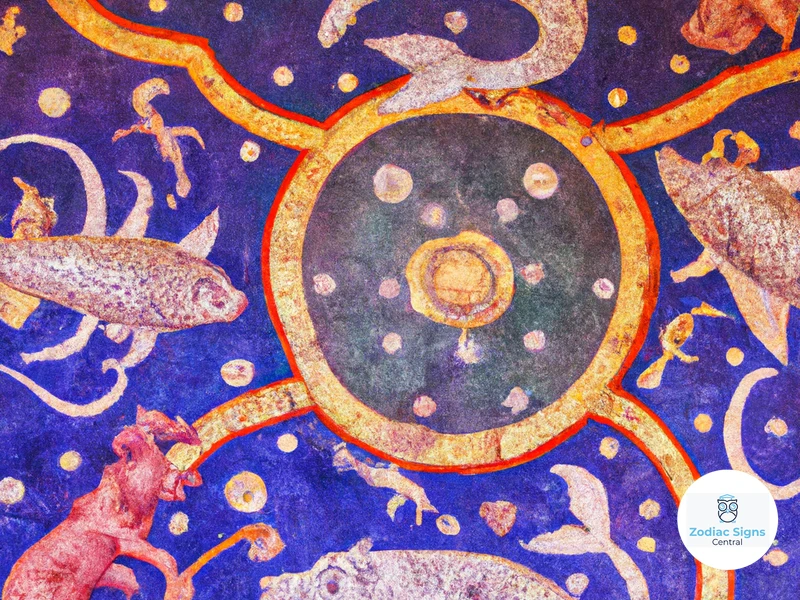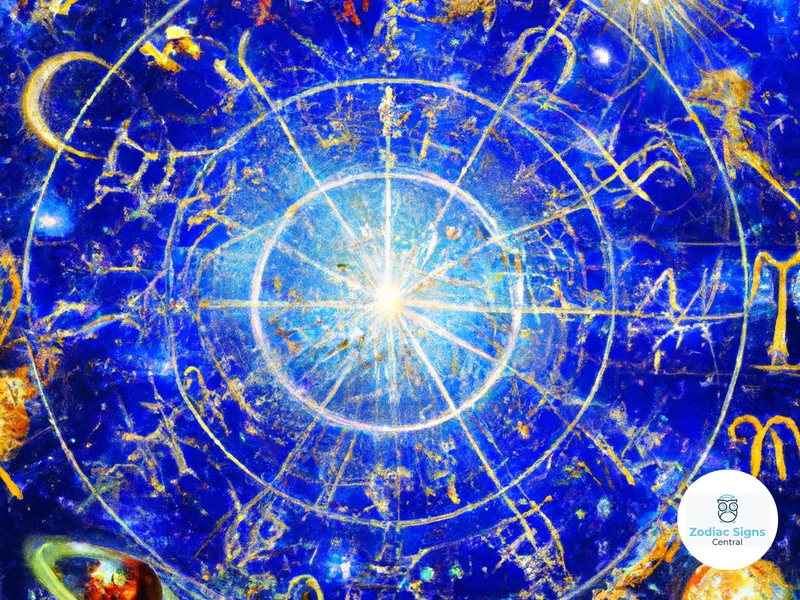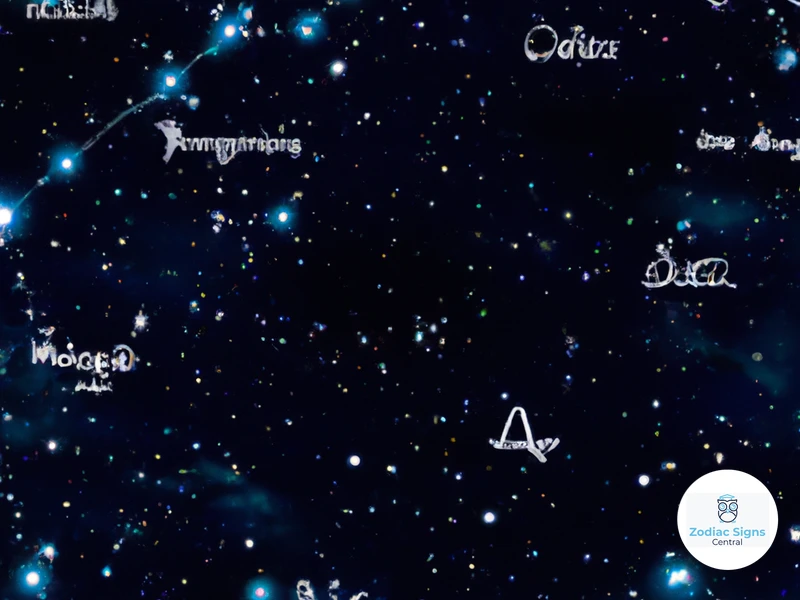Origin of Zodiac Signs

Mythical Stories Related to Zodiac Signs
The Significance of Mythological Stories

Conclusion
As we’ve examined Aries, the courageous ram, Taurus, the steadfast bull, Gemini, the dynamic twins, and Cancer, the protective crab, we see how these stories reflect qualities and characteristics found within ourselves. Leo, the majestic lion, Virgo, the pure and practical virgin, and Libra, the balanced scales, teach us valuable lessons about self-expression, diligence, and harmony. The intense and transformative Scorpio, the adventurous and philosophical Sagittarius, and the disciplined and ambitious Capricorn remind us of the depths of our emotions, the pursuit of knowledge, and the importance of hard work.
As we move into the final signs of the zodiac, we encounter Aquarius, the free-spirited water bearer, and Pisces, the compassionate fish. These signs remind us of the importance of individuality and empathy, and the interconnectedness of all beings. Through their stories, we find guidance and inspiration in navigating our own lives.
In conclusion, the mythological stories tied to zodiac signs enrich our understanding of astrology and provide us with a lens through which to explore our own unique qualities and life’s journey. Whether we view astrology as a tool for self-awareness, a source of guidance, or simply as entertaining tales, the zodiac signs and their mythical stories continue to captivate and inspire people around the world. Astrology offers a fascinating glimpse into the human experience and our quest for meaning in the cosmos.
Frequently Asked Questions

1. What is the significance of zodiac myths in astrology?
Zodiac myths hold great significance in astrology as they provide insight into the characteristics and traits associated with each zodiac sign. These myths help astrologers understand the symbolic meanings behind the signs and how they influence an individual’s personality and destiny.
2. How were zodiac signs influenced by ancient Greek and Roman cultures?
Ancient Greeks and Romans drew inspiration from the celestial bodies and their movements to develop the concept of the zodiac. They associated specific mythological figures with each sign, forming the basis of the zodiac mythology that we know today.
3. What are the Mesopotamian roots of the zodiac?
The Mesopotamians played a crucial role in the development of the zodiac. They were the first civilization to divide the sky into twelve equal parts, known as the zodiac constellations. Their system of astrology heavily influenced the Babylonians, who later expanded on their concepts.
4. How does Chinese astrology differ from Western astrology?
Chinese astrology follows a lunar calendar and assigns animal signs to each year, providing a different perspective on personality traits and destiny. In Western astrology, zodiac signs are based on the position of the sun at the time of birth and focus on a person’s character traits and individual journey.
5. What mythical story is associated with Aries, the Ram?
The mythological story associated with Aries is the Golden Fleece. This story tells of a winged ram who saved two siblings, Phrixus and Helle, from a treacherous journey. The ram was later sacrificed, and its fleece became a symbol of power and nobility.
6. How does the myth of Taurus, the Bull, connect to astrology?
The myth of Taurus is closely tied to the ancient Greek story of the abduction of Europa by Zeus, who disguised himself as a bull. Taurus is associated with qualities such as strength and determination, reflecting the bull’s role in the myth.
7. What story is linked to Gemini, the Twins?
The story linked to Gemini is the myth of Castor and Pollux, twin brothers born to the mortal Leda and the god Zeus. Castor and Pollux were known for their courage and loyalty, representing the duality and versatility associated with Gemini.
8. How does the myth of Cancer, the Crab, relate to astrology?
The myth of Cancer involves the story of Hercules and the Hydra. During their battle, the crab sent by the goddess Hera to aid the Hydra was crushed by Hercules. As a reward for its loyalty, Hera placed the crab in the sky as the constellation Cancer.
9. What is the connection between Leo, the Lion, and astrology?
In astrology, Leo is associated with the myth of the Nemean Lion, which Hercules defeated as one of his twelve labors. Leo symbolizes strength, leadership, and courage, characteristics often attributed to the majestic lion.
10. How does the myth of Virgo, the Virgin, influence astrology?
The myth of Virgo connects to the story of Persephone, daughter of the goddess Demeter, who was abducted by Hades. Demeter’s grief and the search for her daughter represent the nurturing and protective nature associated with the Virgin.
References
Frequently Asked Questions

1. How did the zodiac signs originate?
The zodiac signs originated from diverse cultural sources such as Ancient Greece, Rome, Mesopotamia, and China, each with their unique mythological influences.
2. Are Zodiac signs based on real astronomical objects?
Yes, Zodiac signs are associated with specific constellations and astrological events that occur within the night sky.
3. What is the significance of mythological stories tied to zodiac signs?
The mythological stories tied to zodiac signs provide a deeper understanding of the symbolic meanings and characteristics associated with each sign, helping individuals relate to their own sign and gain insights into their strengths and weaknesses.
4. How do the mythical stories influence the interpretation of zodiac signs?
The mythical stories serve as archetypal narratives that add depth and complexity to the interpretation of zodiac signs. They provide a cultural context and historical significance that enhances the symbolic meanings attributed to each sign.
5. What role does astrology play in Chinese zodiac signs?
Astrology plays a central role in Chinese zodiac signs as they are based on a twelve-year cycle where each year is associated with one of twelve animal signs. These animal signs are believed to have a profound influence on an individual’s personality and destiny.
6. How does Chinese astrology differ from the Zodiac signs we are familiar with?
Chinese astrology differs from the Zodiac signs we are familiar with because it is based on a lunar calendar, placing emphasis on the year of birth rather than the month. Additionally, Chinese zodiac signs are represented by animals rather than constellations.
7. Are the mythological stories mentioned in the article influenced by contemporary cultures?
Yes, mythological stories associated with zodiac signs have been influenced by contemporary cultures. As these stories have been passed down through generations, they have evolved and adapted to reflect the values, beliefs, and experiences of different societies.
8. Is there scientific evidence to support the validity of zodiac signs?
Scientifically, there is limited evidence to support the validity of zodiac signs in predicting individual personalities or future events. However, astrology continues to be of immense cultural and personal significance to many individuals.
9. Can zodiac signs influence compatibility between individuals?
While zodiac signs are believed by some to influence compatibility between individuals, the influence of zodiac signs on relationships is subjective and varies from person to person. Factors such as personal beliefs, values, and experiences play a more significant role in determining compatibility.
10. Can the zodiac sign be a reliable indicator of a person’s traits and destiny?
The zodiac sign is a part of a person’s identity, and while it may provide general insights into their traits, it should not be considered a definitive indicator of their destiny. Individual experiences, choices, and personal growth have a profound impact on shaping a person’s life and future.








